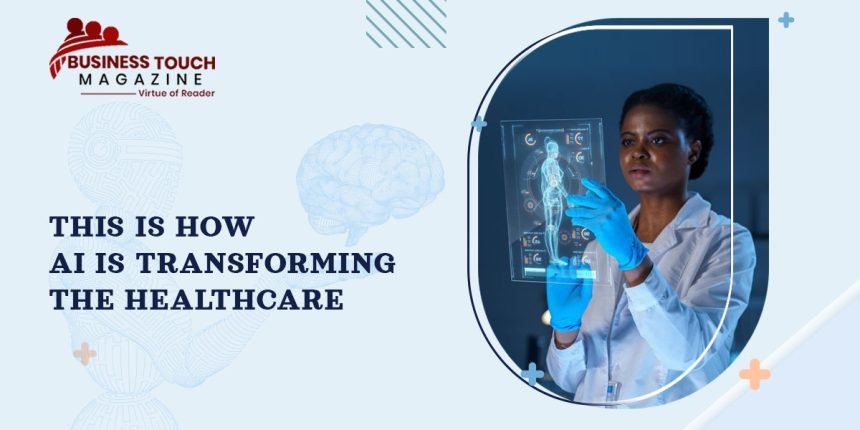Artificial intelligence (AI) technologies, which are rapidly spreading throughout the contemporary industry and daily life, are also being increasingly used in the medical field. The use of AI in healthcare has the ability to aid clinicians in a wide range of patient care and administrative tasks, allowing them to more quickly and effectively improve upon current solutions and solve difficulties. Despite the widespread applicability of AI and healthcare technology, the strategies they underpin may differ considerably amongst institutions such as hospitals. And although some publications on AI in healthcare claim that AI can perform as well as or better than humans at particular operations like illness diagnosis, it will be several years before AI in healthcare is able to fully replace people.
Many others, though, are still confused. What exactly is artificial intelligence and why is it so important in the medical field? What is the current state of AI in healthcare, and what does its future hold? Will it eventually replace humans in emergency situations and hospitals?
Let’s have a look at the various forms of AI and the advantages they provide to the healthcare sector.
Machine Learning
Machine learning is a popular AI technique used in the medical field. It’s a flexible method with multiple implementations that forms the basis of several AI and healthcare tech strategies.
By far, precision medicine is the most common use of conventional machine learning in the field of artificial intelligence in healthcare. Predicting which treatment techniques will be effective with patients based on their makeup and the treatment framework is a big step forward for many healthcare companies. Most machine learning and precision medicine applications in healthcare that employ AI need training data in which the outcome is known. We call this kind of learning “supervised.”
Natural language processing (which makes use of deep learning) is also employed in healthcare AI for voice recognition (NLP). In deep learning models, features often have little to no value to human observers, making it difficult to distinguish between features and outcomes without context.
Natural Language Processing
Over the course of the last half-century, researchers in the fields of artificial intelligence and healthcare technology have sought to develop methods for understanding human language. The backbone of most natural language processing systems is either voice recognition or text analysis followed by a translation. Natural language processing (NLP) tools that can comprehend and categorise clinical documents are a frequent use of AI in healthcare. To better assess quality, enhance methodologies, and provide better patient outcomes, NLP systems may evaluate unstructured clinical notes.
Rule-based Expert Systems
In the 1980s and beyond, ‘if-then’ rule variants formed the backbone of most expert systems used in healthcare AI. Clinical decision assistance is a common use of AI in the healthcare industry nowadays. The majority of EHRs nowadays include a rule set in their applications.
Human experts and engineers are often required to construct a large body of rules in an expert system. To a certain extent, they do their job and are simple to understand and implement.
However, if there are too many rules, often more than a few thousand, they may start to contradict one another and become unworkable. Also, updating the rules might be a hassle if the knowledge domain undergoes major changes. Machine learning is gradually replacing rule-based systems with methods focused on analysing data using proprietary medical algorithms.
Diagnosis and Treatment Applications
AI in healthcare has been focused on illness diagnosis and therapy over the last half-century. Although early rule-based systems showed promise in the diagnosis and treatment of illness, they were not universally adopted for use in clinical practice. They weren’t noticeably better at making diagnoses than humans, and they didn’t interact well with clinical workflows or health record systems.
However, integrating AI-based healthcare diagnostic and treatment plans into existing clinical processes and electronic health record (EHR) systems may be challenging. The accuracy of ideas has been less of a hurdle to the broad implementation of AI in healthcare than problems with integration. Most medical software companies’ artificial intelligence (AI) and healthcare diagnostic and treatment capabilities are siloed and limited to a single aspect of patient care. While still in its early phases, several EHR software providers are including limited healthcare analytics features powered by AI in their product offerings. When employing a standalone EHR system, providers will need to either undertake significant integration projects themselves or make use of the skills of third-party suppliers that have AI capabilities and can interface with their EHR in order to reap the full benefits of AI in healthcare.
Administrative Applications
Many healthcare administration tasks lend themselves well to the use of artificial intelligence. When compared to patient care, the impact of AI on hospitals has been less dramatic. However, AI has the potential to significantly improve administrative processes in healthcare facilities. Claims processing, clinical documentation, revenue cycle management, and medical record administration are just a few of the many healthcare-related uses for artificial intelligence.
Machine learning is another kind of AI with usage in healthcare, and it has applications in both claims and payment processing. There are millions of claims made every day, and insurers and providers need to check that they are accurate. Time, money, and resources are saved when coding errors and false claims are discovered and corrected.
Challenges for Artificial Intelligence in Healthcare
Having access to massive volumes of data is essential for AI to be useful in the healthcare industry, which is one of its major obstacles. The data used to train the algorithms might be biased if it is not representative of the population as a whole, which presents another difficulty. Last but not least, there is a lack of uniformity among various artificial intelligence systems, which may make it difficult to compare findings or merge data from several sources.
Looking Forward
The biggest obstacle to using AI in healthcare is not whether or whether the technologies will be effective, but rather how to get clinicians to actually start using them. Potentially, as time goes on, more and more clinical staff may shift their focus to duties that can only be done by humans, including those that need the greatest levels of cognitive ability. Those in the medical field who refuse to collaborate with AI may be the only ones who miss out on AI’s full potential in healthcare.




